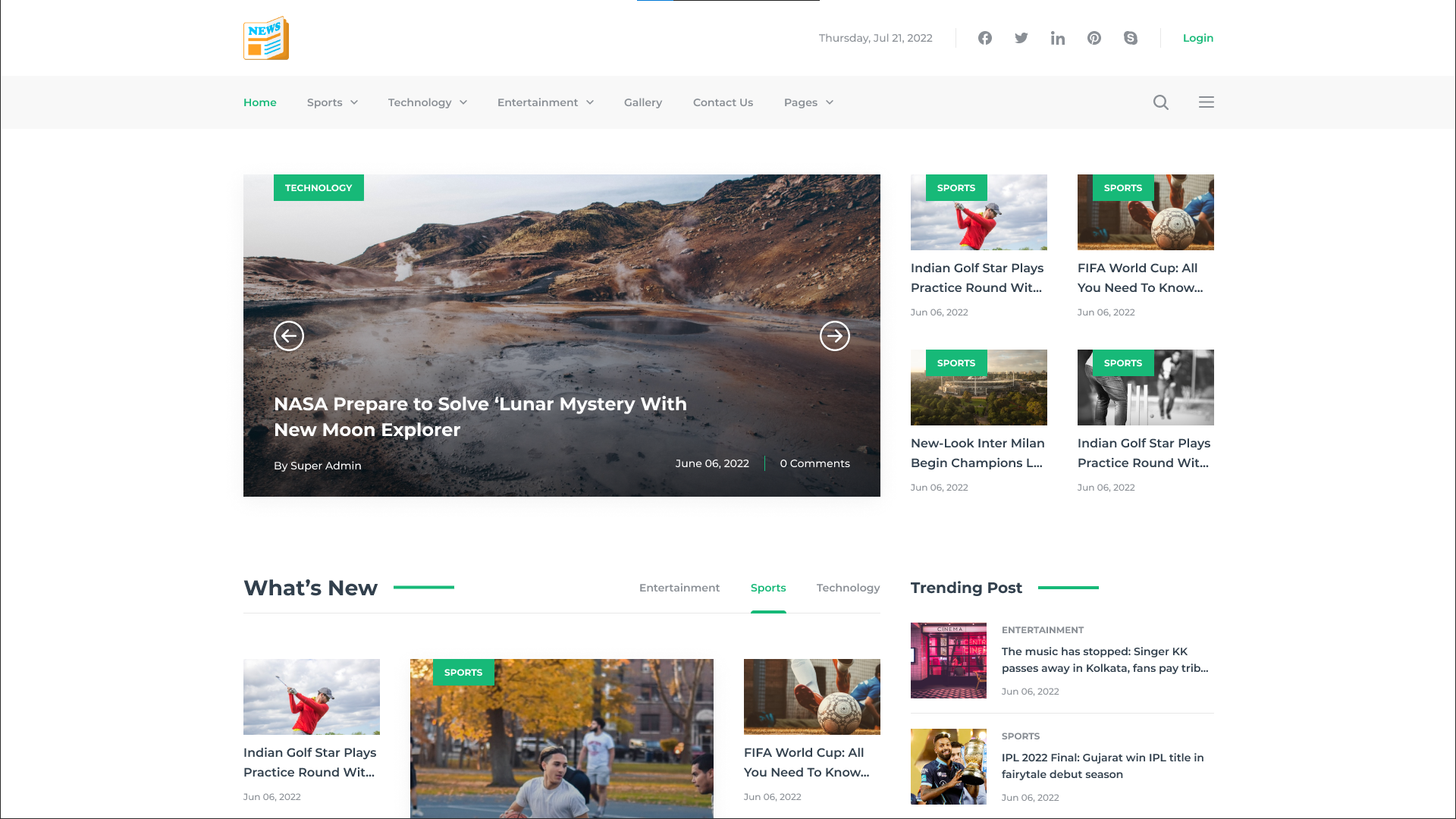In the last ten years, businesses all over the world have adopted cutting-edge technology like artificial intelligence (AI) and machine learning (ML). These same technologies are now in a unique position to make a revolutionary difference since efficiency is now recognized as a necessary element of success.
Currently, insurers are trying to automate and increase the efficiency of their daily operations.
Moreover, these technological advancements enable insurers to access vast amounts of consumer data, facilitating advanced analysis and well-informed decision-making. This in turn makes it easier to provide more profitable and customized insurance products, which boosts client happiness and corporate success.
Chief Revenue Officer of Scanbot SDK Max Stratmann described how the technology is revolutionizing his company. "AI technology, particularly machine learning, is a cornerstone of our InsurTech solutions," the speaker declared. Specifically, we use it to improve our data extraction and mobile document scanning products. Improved user instruction and automatic post-scan processing, including perspective correction and cropping, are some important areas for improvement.
Even while these gains are noteworthy, most people believe they are just the beginning. The artificial intelligence (AI) business has grown significantly in the last few years, and it is expected to reach a worth of $136.55 billion by 2022.
With a predicted compound annual growth rate (CAGR) of 37.3% from 2023 to 2030 and an estimated $1,811.8 billion by that time, Grand View Research projects that this is just the beginning of an exponential surge.
Furthermore, according to PwC, AI will boost the world economy by $15.7 trillion by 2030, more than China and India put together. Given these astounding numbers, it should come as no surprise that AI is being extensively used in the InsurTech industry, as its potential is now practically universally acknowledged.
The astounding potential of the technology was further discussed by Jamie Wilson, Head of Pricing and Innovation at hyperexponential, who stated, "According to McKinsey, AI technologies could add up to $1.1trn in potential annual value for the global insurance industry."
In his evaluation of the technology, Quantee's Sales Director for the UK and Ireland, Scott Holmes, went one step further and declared that he believed AI adoption was "basically mandatory" in order to remain competitive.
"InsurTechs usually have very data-driven propositions, and it is very challenging to really maximize the potential of this data without the use of AI," he stated. Through the use of AI, InsurTechs will be able to quickly and accurately make choices on risk assessment and underwriting, which will enable them to run their underwriting operations profitably. As a result, I believe that using AI to stay competitive is now essentially required.
The CEO of Symfa, Vitali Yurkevich, repeated this idea and provided an example of how the software development company is using AI to help a multinational insurer achieve major efficiency improvements. Symfa plans to use AI to free up an astounding thirty percent of its underwriting capacity—a number too significant to ignore.
We are now working on an innovative project that uses artificial intelligence (AI) to release up to thirty percent of the capacity of a large international insurance company's underwriters. Within predetermined profitability boundaries, this technology generates customized quotes for brokers by comparing insurance plans.
The project's other goal is to make policies more appealing while maintaining respectable profit margins. In the first stage, we organize all quote data, compile all variables used in the financial calculation formulas into a large dataset, and then train an AI bot driven by a neural network on internal calculations to guarantee calculation accuracy. This allows the business to evaluate its policies against those of its rivals, rate them according to client appeal, and provide updated, customized quotes that are occasionally even more profitable than the original ones, according to Yurkevich.
The possible drawbacks of implementing AI
With the growing adoption of AI technology by InsurTechs, a plethora of advantages are unlocked that have the potential to completely transform the insurance industry. Artificial Intelligence presents unparalleled prospects for productivity and financial gain, ranging from optimized data-driven decision-making to optimized underwriting procedures. Nevertheless, it's important to recognize the negative aspects despite the appeal of these benefits. Every advantage AI offers has a matching drawback or difficulty that needs to be carefully considered. InsurTechs must navigate the challenging landscape of AI integration by striking a balance between the promise of innovation and the practicalities of implementation.
One such worry is that, as an ISG report disclosed, insurers are now facing the fact that they adopted the software later than they should have. The admission of this tardiness has sparked worries about the possibility of falling behind rivals, which could lead to a hasty adoption of AI.
The survey indicates that there is a clear urgency to close this gap, with 61.5% of insurance firms planning to devote resources to developing digital customer experiences, 51.3% prioritizing investment in cloud transformation, and 46.2% concentrating on data, machine learning, and artificial intelligence technologies.
But, responding hastily and failing to consider the system's advantages could cause consumers to lose faith in a business's most recent offering.
The hyperexponential Wilson shared his thoughts on the matter, saying, "Insurers should closely align their AI initiatives to broader strategic objectives, rather than getting caught up in the hype of looking everywhere to apply AI." Insurance companies need to have a clear idea of how artificial intelligence (AI) may boost their value proposition, enhance client satisfaction, or expedite processes. A misalignment could prevent large investments in AI from yielding benefits to operations or competitiveness. However, taking a practical approach and maintaining a laser-like concentration on company can assist guarantee that investment yields the highest return.
The ability of the organization to modify its workflows and culture to take advantage of new opportunities is also critical to the successful integration of AI into current operations. One recurrent barrier is resistance to change, particularly in fields where customs and procedures have been in place for a long time. In order to fully realize AI's disruptive potential, businesses need to cultivate a culture of innovation and ongoing learning, he added.
Furthermore, businesses that rely too heavily on AI may have difficulties. Many businesses that carelessly add AI to their products often treat customers like nothing more than data points.
Their AI-driven service operations are primarily reliant on customer data and scorecards for setup. As a result, clients frequently have impersonal encounters that lack authenticity and fall short of their expectations or needs. This problem is made worse in the extremely personal insurance industry.
There are even more possible hazards. Though they are extremely useful tools, AI algorithms run the risk of unintentionally reinforcing biases already in historical data.
Discriminatory effects may arise in pricing, underwriting choices, and claims handling, among other areas of insurance operations.
Artificial intelligence (AI) systems have the potential to inadvertently perpetuate current disparities and result in the unfair treatment of particular demographic groups if they only rely on historical data without giving biases due thought and mitigation. Such skewed results have the potential to compromise insurance industry fairness and equity.
"Sole reliance on AI leads to potential issues, AI lacks ethics, there are no exceptions to the rules, and by its very nature is extremely bureaucratic," said Ashleigh Gwilliam, Director of Insurance Industry Growth at FullCircl. "The true success comes from combining AI with human knowledge and oversight, using its vast computing power as a tool, not as a leader."
In the end, responsible and ethical AI deployment across a variety of businesses, including insurance, depends on understanding the limitations of this exciting but emerging technology.
This was reiterated by Symfa's Head of R&D, Ilya Mokin, who stated, "Although this technology has great promise, it needs a great deal of testing and fine-tuning to assure accuracy and reliability.
What lies ahead?
Looking ahead, it seems highly likely that AI will soon become a standard product in the insurance industry.
As we move beyond the remainder of 2024 and beyond, Stratmann of Scanbot SDK acknowledged that he believed AI was well on its way to being the real competitive difference in the field.
"The automation of most operations, from underwriting and claims processing to customer service, is where artificial intelligence (AI) in insurtech is headed," he stated. This change is expected to boost operational effectiveness while also giving businesses a competitive edge by lowering costs and raising product quality.
Holmes of Quantee agreed, saying that as technology advances, we will soon have access to some "amazing offerings."
"I think there will be a big push toward AI in the near future. Artificial intelligence (AI) will advance to become more sophisticated and capable of handling more aspects of an insurance business due to the drive towards streamlined procedures, customized offerings, and data-driven propositions. With the astute application of AI, I believe we are pretty close to some incredible offers in the InsurTech field," stated Holmes.
Others, on the other hand, believed that despite the captivating headlines, we still don't completely grasp the possibilities that artificial intelligence can provide. Although Gwilliam of FullCircl acknowledged that AI will improve "rapidly" in the upcoming years, he refrained from asserting that AI will ultimately be the most advantageous choice for established industry players in the short run.
"AI will continue to progress; in the coming years, we should anticipate seeing significant breakthroughs due to Moore's law. But when people become more aware of AI's actual capabilities and limitations, we may see disappointment and disillusionment as the technology is still very much in its "Hype" phase. While AI will continue to grow and be widely used in the future, a wise investment would instead consider more tried-and-true options like robotic process automation and natural language processing, according to Gwilliam.
AI will assist organizations in meeting the demands of the present day, where gaining a competitive edge or slipping behind depends on having access to more data, greater insights, and quicker procedures.







.jpeg)
.jpeg)
.jpeg)
.jpeg)










Comments 0